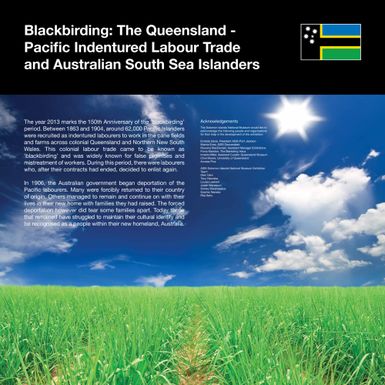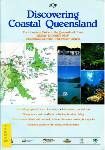Solomon Islands National Museum ResourcesBlack Birding: The Queensland-Pacific Indentured Labour Trade and Australian South Sea Islanders exhibtion
- Description:
- This collection is resources, websites, documents and photos for visitors to access to support their research and understanding of the Solomon Islands.In 2014, the Black Blacking Exhibition was designed to commemorate the 150th Anniversary of the arrival of the first South Sea Islanders in Queensland, Australia. As story-tellers, the National Museum hopes to contribute to the development and education of society by connecting visitors and creating bonds between generations, and exhibited a part of our recent history that has been poorly understood and not properly recognized by many.
- Location:
- Solomon Islands
- Collections:
- Solomon Islands National Museum
- Content partner:
- Solomon Islands National Museum
- Availability:
- Online
-
Copyright status: All rights reservedFind out more about what you are able to do with this itemThis item is all rights reserved, with means you'll have to get permission from Solomon Islands National Museum before using it. For more information, please see our use and reuse page.What can I do with this item?Non-infringing useNZ copyright law does not prevent every use of a copyright work, and this item may be hosted by an international institute or organisation. You should consider what you can and cannot do with a copyright work.No sharingYou may not copy and/or share this item with others without further permission. This includes posting it on your blog, using it in a presentation, or any other public use.No modifyingYou are not allowed to adapt or remix this item into any other works.No commercial useYou may not use this item commercially.
Related items
Welcome and warm Pasifik greetings
The information on this site has been gathered from our content partners.
The names, terms, and labels that we present on the site may contain images or voices of deceased persons and may also reflect the bias, norms, and perspective of the period of time in which they were created. We accept that these may not be appropriate today.
If you have any concerns or questions about an item, please contact us.



